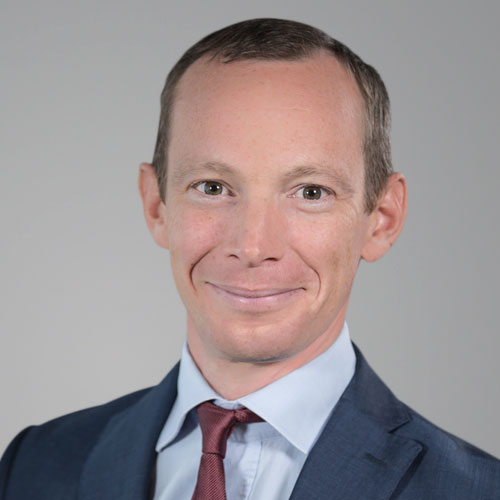Delano - Marc Fassone (03.04.2023) - Olivier Debat, senior investment specialist at Union Bancaire Privée (UBP), an expert in bond investment, shared with Paperjam and Delano his vision of the bond market and the place that bonds should have in portfolios.
According to Olivier Debat, senior investment specialist at UBP, the difficulties encountered in the bond market in 2022 – interest rates rose very rapidly in a move imposed by central banks to control inflation while credit spreads widened due to fears of a recession – have turned into opportunities this year. In the current environment, he is very positive on high income products, including high yield.
After a year 2022 that saw a joint decline in equities and bonds, what is the place of bonds in a portfolio today?
It’s true that in 2022, we lost the relationship that existed between bonds and equities, which meant that historically, in a balanced portfolio, the interest rate part – the bonds – also came to protect the riskier parts, whether it was the equity or credit parts. This created a lot of uncertainty, as the strength of inflation had surprised everyone and there was a lack of visibility as to the high point of the rise in rates.
Today, bonds once again have their place in portfolios. It obviously depends on the risk profile, but bonds allow exposure to interest rates, particularly US rates. In UBP’s global & absolute return fixed income team, we are positive on US rates and more cautious on European rates because we are not at the same level in the inflation cycle.
In the United States, we see that core inflation – excluding real estate and rents – is falling. This is confirmed by several indicators. The direction is there even if the pace is uncertain. The only component that is still very strong is rental inflation. But we know that the rent index depends on the evolution of real estate prices with a 15-month lag. Knowing that property prices have already turned around, we expect to see a pause in rent inflation within six months. Overall, disinflation is underway. And even if the situation could still be volatile, the tipping point has been reached and we know that the Fed has almost reached its terminal rate.
This gives us visibility on interest rates.
What do you think are the most promising segments of the bond market at the moment?
Our central scenario is that inflation will probably fall. But inflation will still be higher than in the last ten years. Therefore, we need to generate income that is higher than the inflation rate. This leads us to favour high-yielding assets, especially high-yield bonds, in a slightly higher proportion than in the past. Indeed, the yield on high-yield bonds has doubled since the lows of 2021, even though the fundamentals of issuers have mostly improved.
In this segment, we focus on the double B. If you look at its historical one-year default rate, it has been 0.6% since the 1990s. For the triple B, it is 0.2%. So in effect, we have a very similar default risk for better returns.
For an investor who does not normally touch high yield, the double B may be a solution allowing him to gain exposure to the asset class.
Another segment also deserves special attention in the high-yield bond market – securitised debt, and in particular CLOs (Collateralised Loan Obligations). These are loans to small and medium-sized companies that are bundled into a securitisation vehicle. A CLO security typically comprises more than 200 individual loans, with strict rules for certain parameters such as maximum exposure per obligor and per sector. Since 1993, not a single AAA or AA rated CLO has been subject to impairment. Despite their defensive structure, CLOs today generate attractive returns. And European CLOs stand out in particular for their attractive valuation levels.
What is the impact of the banking crisis on bond investment prospects?
There will certainly be an impact on the interest rate policy of the Fed and other central banks. We have seen that a cycle of tightening monetary conditions creates volatility. The main lesson I have learned so far is the resilience of senior bank debt, which was not impacted by the acquisition of Credit Suisse by UBS.
The market for AT1 debt – bonds linked to the level of capital of the bank that issued them – has shown that they are more volatile, but remain an investable asset class for those prepared for this type of risk.
And we have also seen that having duration and interest rates in the portfolios has dampened the movements on risky assets.
The low or even negative level of interest rates in recent years has led to the emergence of private assets, mainly at the expense of bonds. In a portfolio today, are these two asset classes competing or complementary?
We have seen this in our interactions with our clients: the period of low interest rates we have experienced has led to a broadening of the range of assets in which they can invest. I doubt that they will go backwards, because they have appropriated these assets and they have a place in their portfolio. But liquidity is still a key criterion, and for that I think bonds still have a great future.









